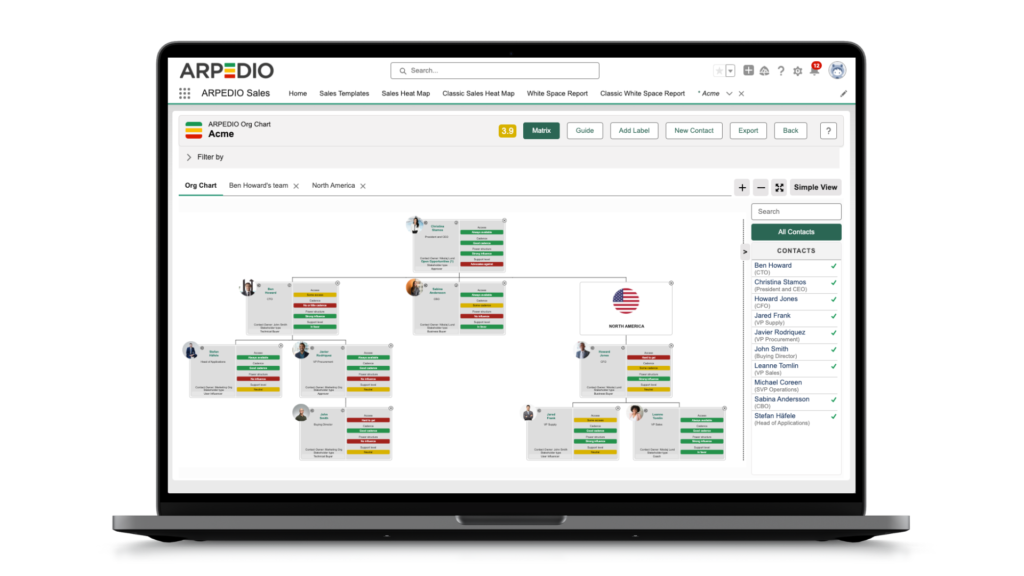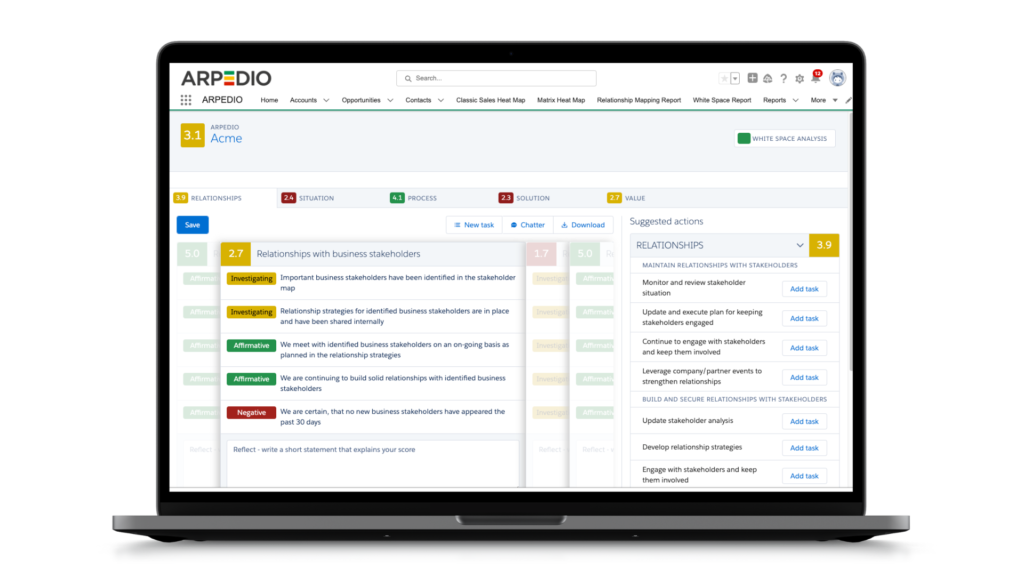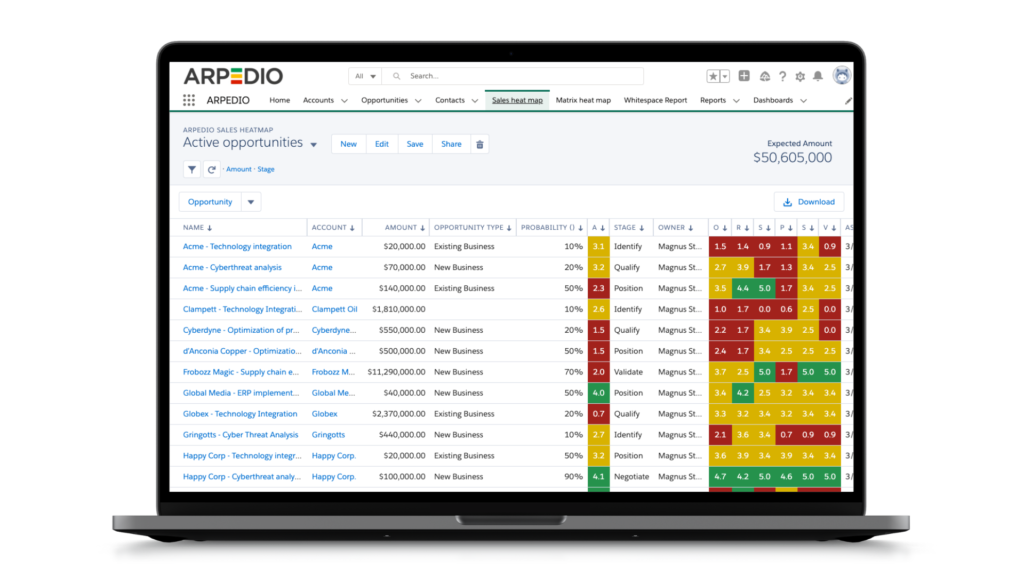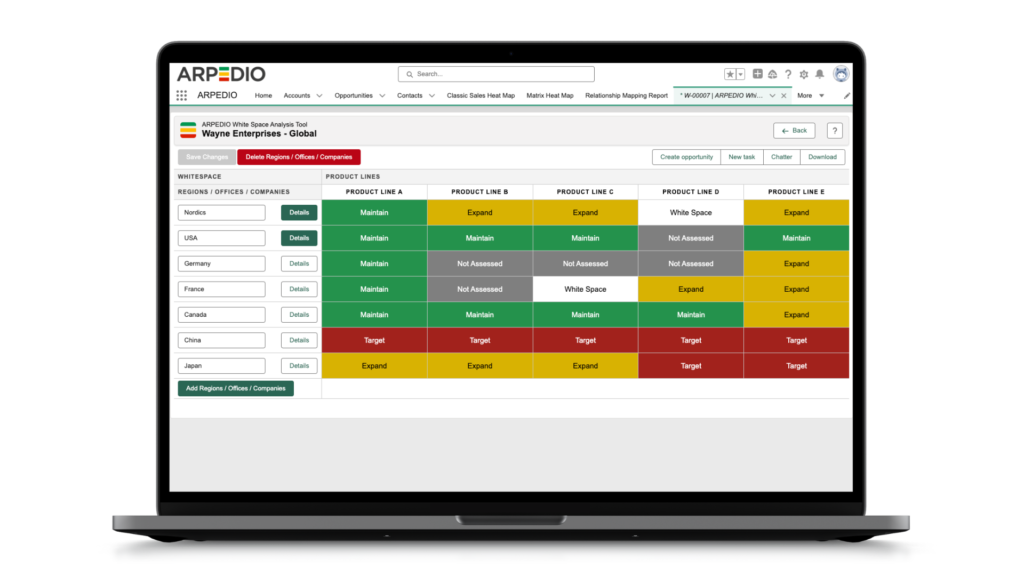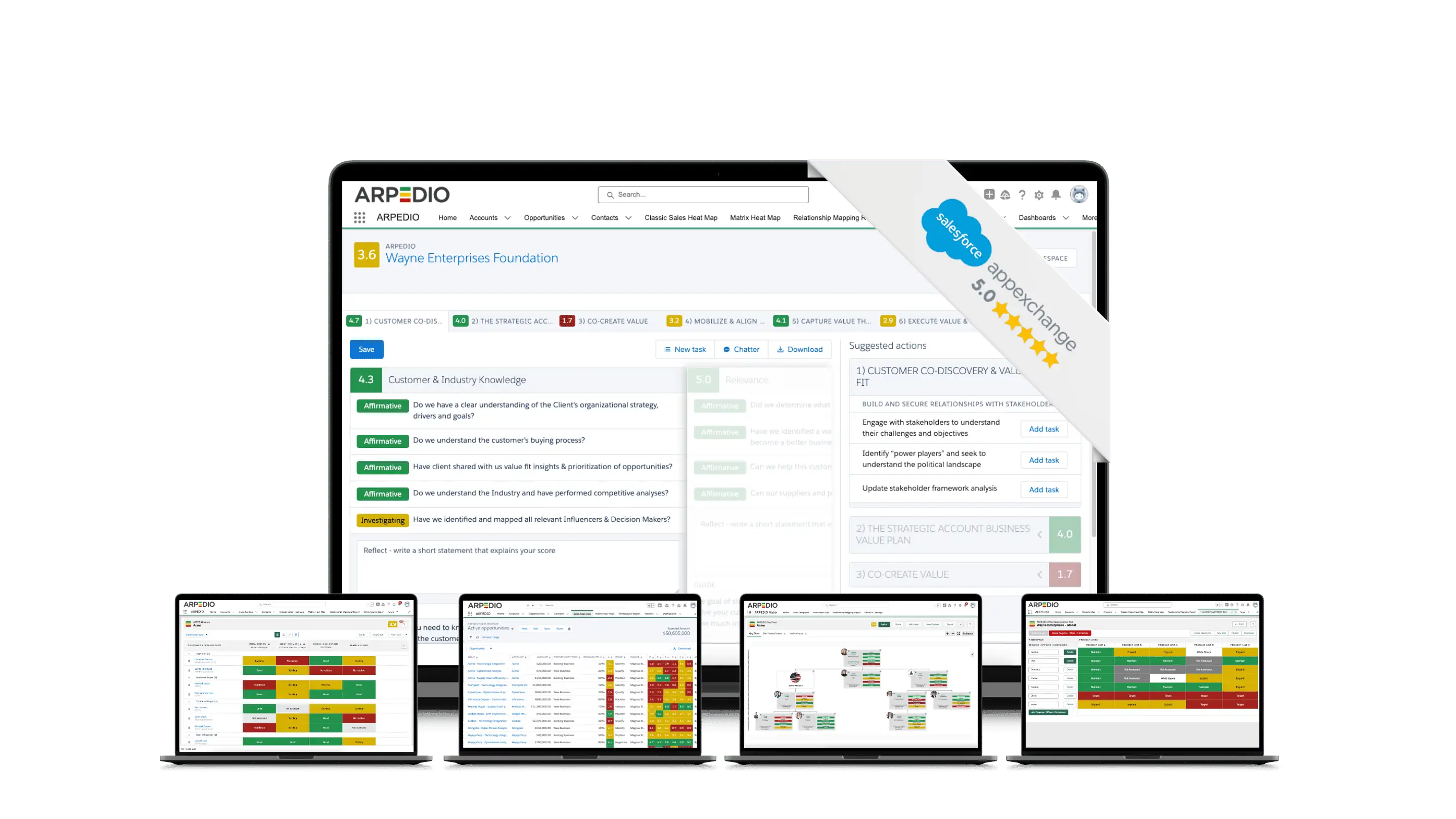In today’s rapidly evolving business landscape, artificial intelligence (AI) has emerged as a pivotal tool in revolutionizing the sales domain. The adoption of AI technologies is not merely a trend; it represents a fundamental shift that empowers businesses to optimize their sales processes, improve customer engagement, and drive revenue growth.
Importance of AI in the Sales Domain
The importance of AI in the sales domain cannot be overstated, particularly in today’s fast-paced and data-driven business landscape. AI technologies offer a range of capabilities that are essential for organizations to thrive in modern sales environments:
-
Insights and Analytics: AI-driven insights provide sales teams with valuable data and analytics to understand customer behavior, preferences, and buying patterns. By analyzing large volumes of data in real-time, AI can identify trends, predict customer needs, and recommend personalized solutions.
-
Automation: AI-powered automation streamlines repetitive tasks, such as data entry, lead scoring, and follow-ups. This frees up valuable time for sales professionals to focus on high-value activities like building relationships and closing deals.
-
Enhanced Decision-Making: AI algorithms process vast amounts of data quickly and accurately, enabling sales leaders to make informed decisions based on data-driven insights. This improves the overall efficiency and effectiveness of sales strategies.
-
Personalized Customer Experiences: AI enables businesses to deliver highly personalized experiences to customers. By leveraging customer data, AI can recommend tailored products or services, send targeted messages, and engage customers at the right time with the right content.
-
Optimized Sales Processes: With AI, sales processes become more efficient and effective. AI tools can prioritize leads, optimize pricing strategies, and identify upsell or cross-sell opportunities, leading to higher conversion rates and increased revenue.
In summary, AI empowers sales organizations to navigate complexities and challenges inherent in modern sales environments by providing actionable insights, automating routine tasks, improving decision-making, personalizing customer interactions, and optimizing sales processes for better outcomes. This technology is essential for staying competitive and achieving sustainable growth in today’s sales landscape.
Overview of AI’s Role in Enhancing Sales Performance
AI is transforming sales performance by offering advanced analytics, predictive modeling, and automation capabilities. These technologies enable sales teams to leverage data-driven strategies, identify new opportunities, and optimize their approach to customer interactions. The result is improved efficiency, higher conversion rates, and increased customer satisfaction.
The commerce ecosystem is witnessing a seismic shift as artificial intelligence sales growth ushers in a new era of efficiency and innovation. Tapping into the rich vein of AI sales potential is becoming a strategic imperative for organizations looking to maintain a competitive edge. By harnessing sophisticated algorithms and data analytics, businesses are unlocking increasing revenue through AI, revolutionizing traditional sales paradigms. This explorative introduction will chart the journey of AI in transforming sales processes, from personalized customer engagement to predictive sales analytics that promise a future of enhanced growth and opportunities.
Understanding AI’s Impact on Sales
Artificial Intelligence (AI) has a profound impact on sales, revolutionizing traditional approaches and transforming how businesses engage with customers. AI technologies offer a range of capabilities that enhance sales effectiveness and drive revenue growth:
-
Data-driven Insights: AI analyzes vast amounts of customer data to uncover patterns, trends, and actionable insights. This empowers sales teams to understand customer needs better, predict buying behavior, and tailor their approach accordingly.
-
Predictive Analytics: AI-powered predictive models forecast sales outcomes, identify potential leads, and prioritize opportunities. This enables sales teams to focus their efforts on high-value prospects most likely to convert, improving conversion rates and sales efficiency.
-
Automation of Routine Tasks: AI automates repetitive tasks like data entry, lead qualification, and follow-ups. By reducing manual workload, sales professionals can dedicate more time to building relationships and closing deals.
-
Personalization at Scale: AI enables personalized customer experiences by analyzing individual preferences and behaviors. Sales teams can deliver tailored recommendations, content, and offers, fostering stronger connections and higher customer satisfaction.
-
Enhanced Decision-making: AI provides real-time insights and recommendations based on data analysis. Sales leaders can make informed decisions about pricing, product positioning, and sales strategies, leading to better outcomes and revenue growth.
Unlocking New Opportunities: How AI Revolutionizes Sales
In today’s fiercely competitive market, businesses are increasingly leveraging artificial intelligence (AI) to drive innovation, gain a competitive edge, and transform their sales operations. AI-driven sales strategies represent a paradigm shift that is reshaping traditional approaches and unlocking new opportunities previously beyond reach.
Artificial intelligence in sales is not merely a trend but a transformative force, maximizing sales efficiency, refining customer interactions, and revolutionizing the way businesses approach revenue generation. By harnessing AI’s full potential, organizations can automate routine tasks, optimize decision-making processes, and deliver personalized customer experiences at scale.
Understanding the Impact of AI on Sales Efficiency
The impact of AI on sales efficiency is profound and multifaceted. At its core, AI enhances operational efficiencies by automating repetitive tasks and augmenting human capabilities with advanced analytics and predictive insights. By integrating AI with customer relationship management (CRM) systems, sales teams gain access to real-time data and actionable intelligence, enabling them to make informed decisions and prioritize high-potential opportunities.
AI-driven sales strategies enable organizations to optimize resource allocation, identify patterns in customer behavior, and tailor sales approaches based on individual preferences. This data-driven approach not only improves sales productivity but also fosters stronger customer relationships and increases overall satisfaction and loyalty.
As businesses embrace AI technologies, they experience significant improvements in productivity and revenue generation. AI’s ability to analyze vast datasets, identify trends, and predict outcomes empowers sales teams to focus on strategic initiatives, allocate resources efficiently, and drive sustainable growth in a competitive marketplace.
Key Benefits of AI Adoption in Sales Processes
The adoption of AI in sales processes offers numerous benefits that empower businesses to optimize performance and achieve competitive advantages:
Improved Efficiency: AI automates manual tasks, streamlines workflows, and accelerates sales cycles, leading to increased productivity and efficiency across sales operations.
Enhanced Customer Engagement: AI-driven personalization enhances customer interactions by delivering relevant content, recommendations, and communications based on individual preferences, improving customer satisfaction and loyalty.
Better Lead Management: AI identifies and prioritizes high-quality leads based on predictive analytics, enabling sales teams to focus efforts on prospects with the highest potential to convert.
Optimized Sales Strategies: AI-powered insights optimize sales strategies by identifying market trends, competitor analysis, and pricing optimization, enabling agile decision-making and strategy refinement.
Increased Revenue and ROI: AI improves sales performance, conversion rates, and deal sizes by enabling data-driven decision-making and personalized customer experiences, ultimately driving revenue growth and maximizing return on investment (ROI).
In summary, AI’s impact on sales is transformative, offering significant benefits such as data-driven insights, predictive analytics, task automation, personalized engagement, optimized strategies, and revenue growth. Businesses that embrace AI in their sales processes gain a competitive edge and position themselves for sustained success in dynamic markets.
AI Technologies Reshaping Sales Strategies
AI technologies are reshaping sales strategies by introducing innovative capabilities that empower sales teams to operate more efficiently and effectively. Here are key AI technologies driving transformation in sales:
Predictive Analytics: AI-driven predictive analytics enables sales teams to forecast customer behavior, identify potential leads, and prioritize opportunities. This technology leverages historical data to anticipate future outcomes and guide strategic decision-making.
Natural Language Processing (NLP): NLP allows sales professionals to analyze customer interactions, emails, and chat transcripts to extract valuable insights. By understanding customer sentiments and preferences from unstructured data, sales teams can personalize interactions and address customer needs more effectively.
Machine Learning (ML): ML algorithms analyze large datasets to identify patterns and trends, optimizing sales processes and improving forecasting accuracy. ML-powered recommendation engines suggest relevant products or services based on customer behavior, increasing upsell and cross-sell opportunities.
Sales Automation: AI automates routine tasks like lead scoring, data entry, and follow-ups, freeing up time for sales professionals to focus on relationship-building and strategic activities. Automation enhances productivity and accelerates sales cycles.
CRM Integration: AI-powered Customer Relationship Management (CRM) platforms leverage data to provide actionable insights, enhance customer profiles, and optimize sales strategies. Integrated AI features enable predictive lead scoring, personalized recommendations, and automated workflows within CRM systems.
Leveraging ARPEDIO for a Strong Data Foundation
ARPEDIO provide a strong data foundation for AI-powered sales initiatives, enabling organizations to leverage data-driven insights and streamline sales operations. Here’s how ARPEDIO facilitates a robust data foundation for sales:
Data Standardization: ARPEDIO standardizes and organizes sales data within Salesforce, ensuring data quality and consistency for AI analysis and reporting.
Relationship Mapping: ARPEDIO’s Relationship Mapping software visualizes stakeholder relationships and account hierarchies, enhancing customer understanding and enabling targeted engagement strategies.
Opportunity Management: ARPEDIO’s Opportunity Management software optimizes sales pipelines, providing real-time insights into deal progression and sales performance.
AI Readiness: ARPEDIO assessments prepare organizations for AI adoption by establishing clean, structured data and aligning sales processes with AI-driven strategies.
By leveraging ARPEDIO solutions, businesses establish a solid data foundation that supports AI technologies, drives sales effectiveness, and unlocks AI’s full potential in transforming sales strategies and customer engagement.
Challenges and Considerations in AI Sales
Implementing AI in sales processes presents unique challenges and considerations that organizations must address to maximize its benefits. Here are key challenges and considerations in AI sales:
Data Quality and Integrity: AI relies on high-quality, clean data for accurate insights and predictions. Ensuring data accuracy, consistency, and relevance is crucial for AI-driven sales initiatives.
Change Management: Adopting AI technologies requires cultural shifts and changes in workflow. Organizations must prioritize change management efforts to ensure buy-in from stakeholders and successful AI integration.
Ethical Use of AI: As AI becomes more prevalent in sales, organizations must address ethical considerations related to data privacy, transparency, and bias mitigation. Implementing responsible AI practices is essential for maintaining customer trust and regulatory compliance.
Skill Gaps and Training: Sales teams need training to leverage AI tools effectively. Upskilling employees and hiring AI-literate talent is essential to maximize the impact of AI technologies on sales performance.
Integration Complexity: Integrating AI with existing sales systems and processes can be complex. Organizations must invest in seamless integration strategies and technologies to avoid disruption and ensure data interoperability.
Future Trends and Innovations in AI for Sales
The future of AI in sales is poised for rapid evolution, driven by emerging trends and innovations that will reshape sales strategies and customer engagement. Here are key future trends and innovations in AI for sales:
Advanced Predictive Analytics: AI-driven predictive analytics will evolve to deliver more accurate and actionable insights, enabling proactive sales strategies and dynamic forecasting.
Conversational AI: Chatbots and virtual sales assistants powered by AI will become more sophisticated, offering personalized, real-time support to customers and sales teams.
AI-Driven Customer Journey Mapping: AI technologies will enable organizations to map and optimize every stage of the customer journey, delivering hyper-personalized experiences and enhancing customer satisfaction.
AI-Powered Sales Coaching: AI will assist sales professionals with personalized coaching and performance insights, driving continuous improvement and skill development.
By embracing these future trends and innovations, organizations can unlock AI’s full potential in sales, driving revenue growth, fostering customer relationships, and staying ahead of the competition in the digital age.
Conclusion
In conclusion, AI’s potential in sales is vast and transformative, offering businesses unprecedented opportunities to enhance sales performance, optimize processes, and deliver exceptional customer experiences. By harnessing AI technologies and strategies, organizations can navigate the complexities of modern sales environments with agility and precision.
As AI continues to evolve, it will reshape sales strategies, drive innovation, and redefine the customer-sales relationship. Embracing AI in sales is not just a trend; it’s a strategic imperative for organizations aiming to achieve sustainable growth and competitive advantage in today’s digital landscape.
To unlock AI’s full potential in sales, businesses must prioritize data quality, address ethical considerations, and invest in training and integration. By staying ahead of future trends and innovations, organizations can leverage AI to drive revenue growth, foster customer relationships, and position themselves as leaders in the AI-powered sales landscape.




